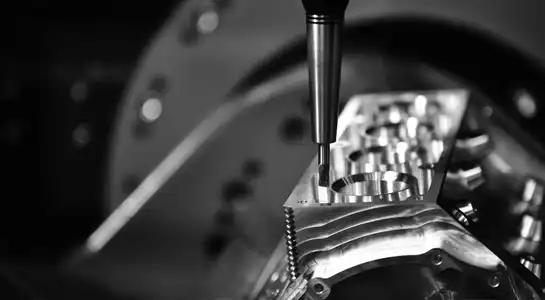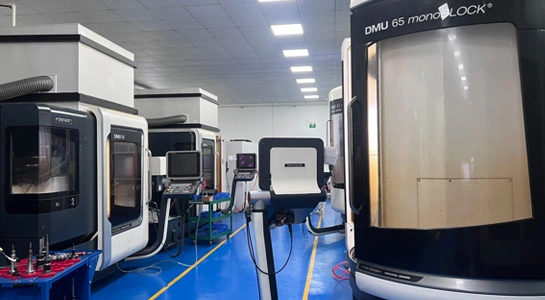The Importance of Pre-Production Runs in Product Development
Identifying Design Flaws and Manufacturing Challenges
Pre-production runs play a critical role in uncovering design flaws and manufacturing challenges that may not be apparent during the prototyping phase. By producing a small batch of products under conditions that closely mimic full-scale production, companies can identify issues such as:
- Material incompatibilities
- Assembly difficulties
- Unexpected tolerances
- Production bottlenecks
These insights allow engineers and designers to make necessary adjustments before committing to large-scale production, saving time and resources in the long run.

Optimizing Production Processes
Pre-production runs provide an opportunity to fine-tune manufacturing processes, ensuring efficiency and quality in full-scale production. During this phase, manufacturers can:
- Test and refine production line setups
- Optimize tooling and fixtures
- Develop and validate quality control procedures
- Train production staff on new processes
By addressing these aspects early on, companies can significantly reduce the likelihood of production delays and quality issues when scaling up.
Validating Product Performance and Quality
Pre-production runs allow for thorough testing of product performance and quality under real-world conditions. This validation process helps ensure that the final product meets or exceeds customer expectations. Key benefits include:
- Confirming product functionality and durability
- Assessing aesthetic qualities and finish
- Identifying potential quality issues or defects
- Gathering data for continuous improvement
By addressing any shortcomings discovered during pre-production, companies can enhance product quality and customer satisfaction.

Cost and Risk Reduction Through Pre-Production Runs
Minimizing Production Errors and Waste
Pre-production runs are instrumental in reducing costly errors and waste during full-scale manufacturing. By identifying and resolving issues early in the process, companies can:
- Decrease material waste
- Minimize production line downtime
- Reduce the need for costly rework or recalls
- Improve overall production efficiency
These improvements lead to significant cost savings and a more sustainable manufacturing process.
Accurate Cost Estimation and Pricing
Pre-production runs provide valuable data for more accurate cost estimation and pricing strategies. By simulating actual production conditions, manufacturers can:
- Refine material and labor cost estimates
- Identify potential cost-saving opportunities
- Develop more competitive pricing strategies
- Improve overall financial planning
This information is crucial for maintaining profitability while remaining competitive in the market.
Mitigating Risks in Full-Scale Production
Pre-production runs serve as a risk mitigation strategy, helping companies avoid potentially costly mistakes during full-scale production. Key benefits include:
- Identifying and addressing potential safety issues
- Ensuring compliance with industry standards and regulations
- Reducing the likelihood of product recalls or liability claims
- Building confidence in the product and production process
By addressing these risks early on, companies can protect their reputation and financial stability.
Enhancing Product Launch Success with Pre-Production Runs
Refining Marketing and Sales Strategies
Pre-production runs provide valuable insights that can inform and improve marketing and sales strategies. By producing a small batch of products, companies can:
- Generate sample products for marketing materials and demonstrations
- Conduct focus groups and gather customer feedback
- Refine product positioning and messaging
- Develop more accurate sales forecasts
These insights help create more effective marketing campaigns and sales approaches, ultimately leading to a more successful product launch.
Improving Supply Chain Management
Pre-production runs offer an opportunity to optimize supply chain management before full-scale production begins. Key benefits include:
- Identifying potential supplier issues or bottlenecks
- Refining inventory management strategies
- Streamlining logistics and distribution processes
- Building stronger relationships with suppliers and partners
By addressing these aspects early on, companies can ensure a smoother and more efficient production and distribution process.
Gathering Data for Continuous Improvement
Pre-production runs provide valuable data that can be used for ongoing product and process improvement. This information allows companies to:
- Establish baseline performance metrics
- Identify areas for future optimization
- Develop more effective quality control procedures
- Inform future product development efforts
By leveraging this data, companies can continuously enhance their products and manufacturing processes, staying competitive in the market.

Conclusion
Pre-production runs are a critical step in the product development process, offering numerous benefits that contribute to the success of new products. By identifying design flaws, optimizing production processes, and validating product quality, companies can minimize risks and reduce costs associated with full-scale manufacturing. Furthermore, pre-production runs provide valuable insights for refining marketing strategies, improving supply chain management, and gathering data for continuous improvement. Ultimately, investing in pre-production runs leads to smoother product launches, enhanced quality, and improved market competitiveness.
FAQs
1. How long does a typical pre-production run take?
The duration of a pre-production run varies depending on the product complexity and production scale. It can range from a few days to several weeks.
2. Are pre-production runs necessary for all new products?
While not always mandatory, pre-production runs are highly recommended for most new products, especially those with complex designs or high production volumes.
3. How many units are typically produced during a pre-production run?
The number of units produced during a pre-production run can vary widely, but it's generally a small fraction of the planned full production volume, often ranging from dozens to a few hundred units.
Expert Pre-Production Run Services | BOEN
At BOEN Prototype, we specialize in providing high-quality pre-production run services for a wide range of industries. Our expert team leverages cutting-edge technology and years of experience to ensure your product is optimized for full-scale manufacturing. As a trusted supplier and manufacturer, we offer comprehensive solutions to meet your prototyping and low-volume production needs. Contact us at contact@boenrapid.com to learn how we can support your product development journey.
References
Smith, J. (2022). The Role of Pre-Production Runs in Product Development. Journal of Manufacturing Excellence, 15(3), 78-92.
Johnson, A., & Brown, T. (2021). Cost Reduction Strategies in New Product Introduction. International Journal of Production Economics, 233, 108-121.
Lee, S. H., & Kim, Y. J. (2023). Optimizing Supply Chain Management through Pre-Production Runs. Supply Chain Management: An International Journal, 28(2), 201-215.
García-Alcaraz, J. L., et al. (2020). The Impact of Pre-Production Runs on Product Quality and Manufacturing Efficiency. Robotics and Computer-Integrated Manufacturing, 61, 101849.
Wang, X., & Zhang, Y. (2022). Risk Mitigation in New Product Development: The Role of Pre-Production Testing. International Journal of Project Management, 40(4), 367-380.
Thompson, R. (2021). Enhancing Product Launch Success: Lessons from Pre-Production Runs. Harvard Business Review, 99(4), 112-120.





